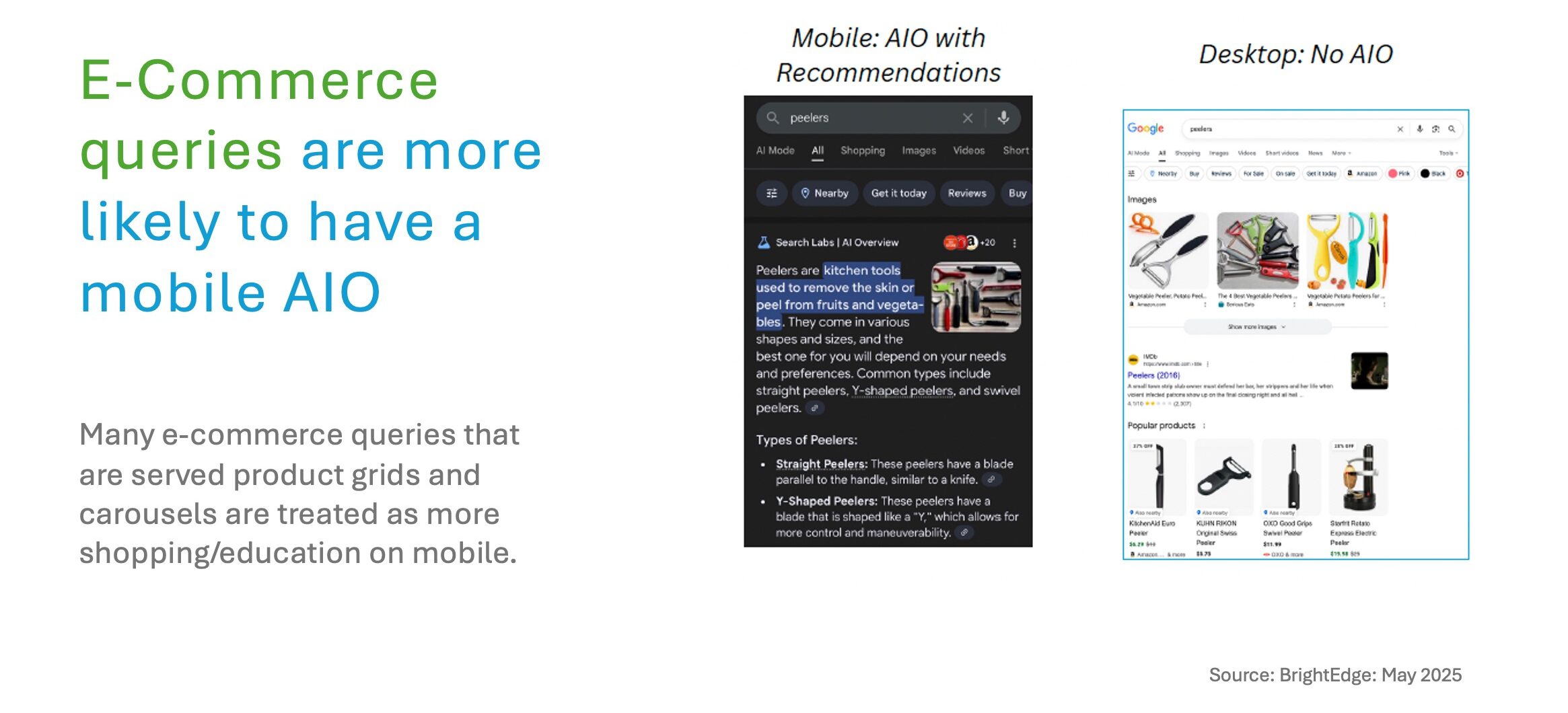AI search referrals overwhelmingly come from desktop, flipping the usual script where mobile rules web traffic. New data from BrightEdge shows over 90% of AI-powered search traffic to websites originates on desktop devices, not mobile.
ChatGPT leads the pack with 94% desktop referral traffic despite its popular mobile app. Perplexity spikes even higher, sending 96.5% of referrals from desktop. Microsoft Bing sticks close with 95% desktop, and Google Gemini hits 91%. The only holdout? Classic Google Search still leans mobile at 53%.
The core issue: mobile AI apps often show in-app previews, blocking direct clicks to websites. Desktop users get straight referral links. This architectural choice chunks mobile AI referrals way down.
Desktop users focus on deep research and detailed information while mobile users favor discovery and quick answers. Ecommerce queries trigger three times more mobile AI Overviews, reflecting shopping and discovery use cases on phones.
Apple’s control over mobile search is huge. iPhones drive 58% of Google’s mobile traffic to branded sites via Safari. Apple hasn’t yet baked AI search into Safari, making it a key wild card for future mobile AI growth.
Marketers need split strategies now:
-
Desktop: Build expert, long-form content with structured data to maximize citations and referrals.
- Mobile: Focus on concise, discovery-driven content optimized for in-app previews and shopping queries.
The desktop AI referral dominance won’t last. As mobile AI platforms fix referral issues and Apple enters the game, mobile AI search traffic will surge. Brands must prepare for a two-front AI search battle.
The AI search revolution is creating two distinct experiences: desktop-focused referral traffic and mobile-focused engagement that don’t yet translate to website visits. This divide presents both immediate opportunities and strategic imperatives for marketers:
Immediate opportunities exist in desktop AI optimization. With 90% of AI referrals coming from desktops, brands can capture significant traffic by optimizing for desktop AI search patterns and citation preferences.
Mobile AI strategy requires different thinking. Mobile AI optimization isn’t about responsive design. It’s about understanding discovery-focused user intent and preparing for different referral mechanisms as more AI search engines hit the market.
Apple remains the wild card. Any changes to Safari’s default search behavior or introduction of native AI features could reshape mobile search overnight, making preparation essential.
Data source: BrightEdge’s Open Frontier of Mobile AI Search, June 2025
Source: BrightEdge The Open Frontier of Mobile AI Search, June 2025

Source: BrightEdge, May 2025














